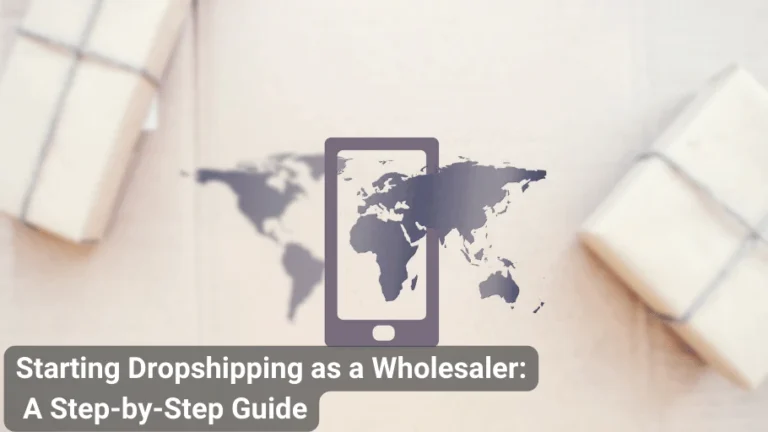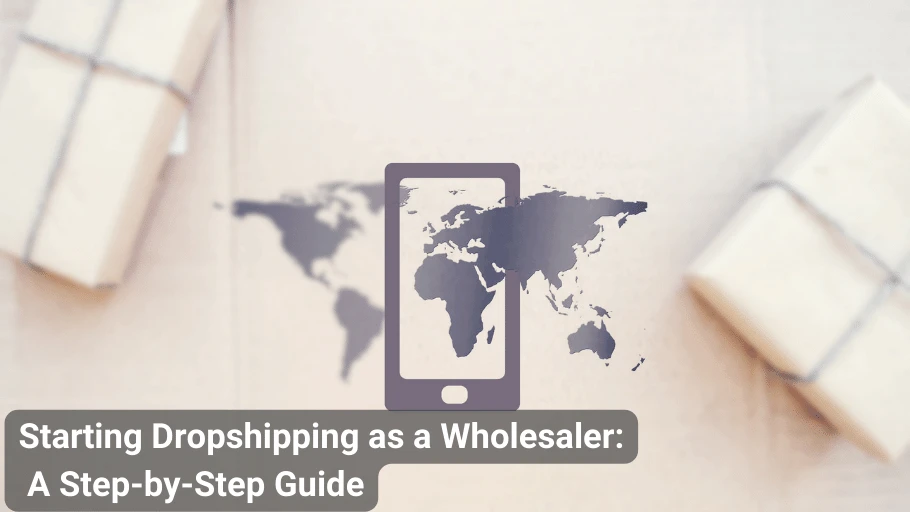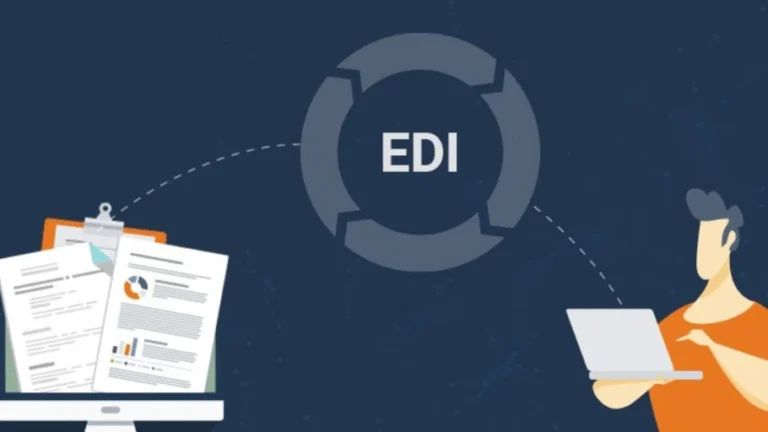Wholesale dropshipping is a business model where a wholesaler partners with retailers to fulfill customer orders directly.
Dropship wholesalers can enjoy numerous benefits from this business model. Wholesale B2B dropshipping allows wholesalers to reduce inventory management responsibilities for their retail partners, leading to increased demand for their products. This business model allows wholesalers to scale their operations quickly, tap into a larger market share, and expanding their reach to global retail partners.
If you are a wholesaler looking to expand your business and capitalize on the growing trend of dropshipping, then this guide is for you. We explore the advantages for dropship wholesalers and simplify the process of starting a dropshipping as a wholesaler into easy-to-follow steps.

What is Wholesale Dropshipping
Benefits of Dropshipping for Wholesalers
When managing a wholesale business, wholesalers must take every opportunity to expand the success of their B2B business. Dropshipping offers several benefits to wholesalers that can help them grow their businesses:
- Expanded Market Reach: By partnering with multiple retailers, wholesalers can tap into a larger customer base and sell their products to a more diverse audience. This helps them expand their market reach and increase overall sales.
- Lower Marketing Costs: Retailers often handle the marketing and promotion of products, reducing the marketing efforts and costs for wholesalers. This allows dropship wholesalers to focus on other aspects of their business, such as improving their product offerings and logistics.
- Increased Sales Volume: As retailers promote and sell the wholesaler’s products without inventory constraints, wholesalers can experience increased sales volume, leading to higher revenue and profitability.
- Reduced Inventory Risk: With dropship distribution, wholesalers only ship products when an order is placed by the retailer’s customer. This reduces the risk of holding unsold inventory and the associated costs.
- Streamlined Operations: Dropship distribution simplifies the supply chain for wholesalers, as they only need to manage inventory and shipping. This eliminates the need to coordinate with multiple retailers on inventory levels, storage, and logistics.
- Stronger Retailer Relationships: By offering dropshipping services, wholesalers can build stronger relationships with retailers and foster long-term partnerships. This can lead to increased business stability and growth.
- Opportunity for Specialization: Dropship wholesalers can focus on specific niches or product categories, becoming experts in their chosen fields. This specialization can make them more attractive to retailers looking for high-quality and reliable dropshipping partners.
Step-by-Step Guide to Becoming a Dropship Wholesaler
Step 1: Identify Your Target Market
You can also do competitor research to identify gaps in the market that you can fill to gain a competitive edge. This strategic approach will not only help you stand out among competitors but also contribute to the growth and success of your dropshipping venture as a wholesaler.
Step 2: Prepare Your Product Catalog
Provide your product catalog in an easily accessible digital format, such as a downloadable PDF or an online portal. This accessibility simplifies the process for retailers to integrate your products into their eCommerce platforms. By making your catalog readily available and easy to use, you increase the likelihood of retailers choosing to work with you and promote your products through their online stores.
Step 3: Set Up a Reliable Inventory Management System
A crucial aspect of being a successful dropship distributor is having an efficient and reliable inventory management system.
Implementing a system that can track stock levels in real-time, manage order processing, and automatically update your retail partners about any changes in stock availability helps maintain accurate inventory data and prevent issues such as overselling. Inventory management software can be used to streamline your processes and ensure seamless communication with your retail partners.
A reliable inventory management system also enables you to analyze sales trends and make informed decisions about your products. By understanding patterns in sales data, you can decide when to restock products, discontinue items, or introduce new offerings. Effective inventory management will contribute to the overall success of your wholesaler dropshipping.
Step 4: Establish Competitive Pricing and Shipping Policies
Providing clear and transparent information about your pricing will help build trust with your retail partners. Your pricing should account for the cost of goods, shipping, and a reasonable profit margin. By offering flexible pricing options, such as volume discounts or promotional pricing, you can also incentivize retailers to work with you.
Your shipping policies should include the shipping carriers you work with, estimated delivery times, and any shipping fees. By providing a range of shipping options, you can cater to various retailer preferences and expectations. This will attract more retail partners and maintain positive relationships in the long run.
Step 5: Create a User-Friendly Platform for Retailers
Incorporate features such as order tracking, order history, and automated notifications to enhance the user experience for your retail partners. You can also provide resources and support materials, such as product guides, marketing materials, and frequently asked questions, to assist retailers in promoting and selling your products. By creating a user-friendly platform, you will make it easier for retailers to partner with you and efficiently manage their dropshipping operations.
Step 6: Market Your Dropshipping Services
Create a comprehensive marketing plan that outlines your marketing goals, target audience, marketing channels, and key messages. This plan will serve as a roadmap for your promotional efforts, ensuring that your messaging is consistent and focused. A well-thought-out marketing plan will also help you allocate resources efficiently and measure the effectiveness of your marketing campaigns.
Utilize content marketing, search engine optimization, and email marketing to drive traffic to your platform and generate leads. These digital marketing strategies will help you reach a broader audience and attract more retailers looking for a reliable dropship distributor. By developing a strong marketing strategy and consistently promoting your dropshipping services, you will increase your visibility in the market and attract more retail partners, ultimately growing your business.
Step 7: Build Strong Relationships with Retail Partners
Foster open communication channels with your retail partners and encourage them to provide feedback and suggestions for improvement. Actively address their concerns and implement changes based on their feedback to demonstrate your commitment to their success. Building strong relationships with your retail partners will not only help grow your dropshipping business but also establish a solid reputation in the industry.
Automate Wholesale B2B Dropshipping with Salesorder
Kickstart your dropshipping as a wholesaler with Salesorder cloud-based ERP system.
Our affordable ERP system includes wholesale B2B dropshipping automation software to streamline the entire dropshipping process. With our dropshipping order management software, you can increase the efficiency and organization of your dropship workflow and easily manage large order quantities. By adopting wholesale B2B dropshipping automation, you can save time, reduce costs, and optimize your dropshipping operations.
Talk with an expert to discuss how our ERP system can benefit your wholesaler dropshipping.
FAQs
Can you dropship from a wholesaler?
Yes, you can dropship from a wholesaler. Many wholesalers partner with retailers to offer dropshipping services, allowing retailers to sell products without holding inventory while the wholesaler handles order fulfillment and shipping directly to the customers.





